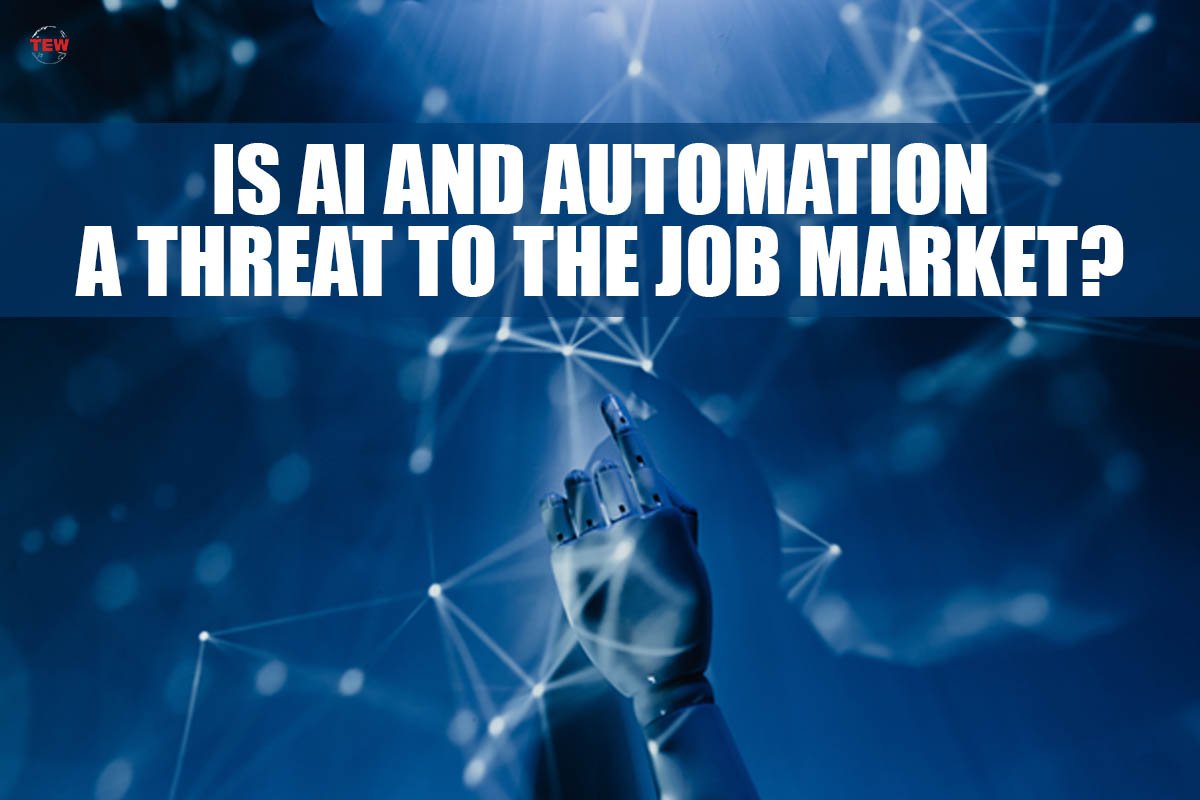Artificial intelligence (AI) and automation have revolutionized the way we work, learn, and communicate. They have made many tasks more efficient, cost-effective, and faster than ever before. However, the widespread adoption of AI and automation has also raised concerns about their impact on the job market. Some experts argue that AI and automation will replace many jobs, causing widespread unemployment and economic disruption. Others argue that AI and automation will create new jobs and enhance productivity, driving economic growth and prosperity. In this blog, we will explore both sides of the debate and try to answer the question:
Is AI and automation a threat to the job market? :
1. The Case for AI and Automation as a Threat to the Job Market
One of the main arguments for the idea that AI and automation are a threat to the job market is the fact that they are already replacing many jobs in various industries. For example, self-driving trucks and delivery robots are replacing truck drivers and delivery personnel. Similarly, automated customer service chatbots are replacing human customer service representatives. This trend is likely to continue as AI and automation become more sophisticated and affordable.

Another argument for the idea that are a threat to the job market is that they are likely to create a growing skills gap. As more jobs are automated, workers who do not have the necessary skills to work with will become increasingly irrelevant in the job market. This is likely to exacerbate income inequality, as those who can adapt to AI will earn more, while those who cannot will earn less or become unemployed.
Furthermore, AI and automation are likely to have a disproportionate impact on certain types of jobs and industries. For example, routine manual jobs, such as assembly line work and data entry, are highly susceptible to automation. This could lead to job losses in manufacturing, logistics, and other sectors that rely on routine manual labor.
2. The Case Against AI and Automation as a Threat to the Job Market
While there are certainly risks associated with AI and automation, there are also compelling arguments against the idea that they are a threat to the job market. One of the main arguments is that AI and automation will create new jobs and enhance productivity. For example, AI can be used to analyze large amounts of data and provide insights that can help businesses make better decisions. This can lead to increased productivity and competitiveness, which in turn can create new jobs in a variety of fields.
Moreover, Both can also improve the quality of jobs by taking on tasks that are dull, dirty, or dangerous. For example, robots can be used to perform dangerous tasks in hazardous environments, such as nuclear power plants and oil rigs. This can reduce the risk of injury and death for human workers and improve the overall safety of these industries.

Additionally, AI and automation can also improve the efficiency and cost-effectiveness of healthcare and education. For example, AI can be used to analyze medical records and assist with diagnoses, leading to more accurate and efficient healthcare. Similarly, AI can be used to personalize education and provide more individualized instruction to students, improving their learning outcomes and preparing them for the jobs of the future.
It is clear that there are both risks and opportunities associated with the widespread adoption of AI and automation. While it is true that AI and automation are likely to replace many jobs in various industries, they are also likely to create new jobs and enhance productivity in a variety of fields. It is important for policymakers, educators, and businesses to recognize these risks and opportunities and work to address them in a responsible and proactive manner.
One approach that can help mitigate the risks of Both is to invest in education and training programs that help workers acquire the skills they need to work with these technologies. This can help ensure that workers are equipped to succeed in the jobs of the future and can take advantage of the opportunities presented by AI and automation.
Moreover, governments can also encourage businesses to adopt responsible AI and automation policies that prioritize the well-being of workers and society as a whole. This could include measures such as providing adequate social safety nets for displaced workers, promoting the development of ethical AI, and supporting the growth of industries that are less susceptible to automation.
Ultimately, the impact of AI and automation on the job market will depend on how society chooses to respond to these technologies. If we invest in education and training programs, develop responsible policies, and embrace the opportunities presented by AI and automation, we can create a future where these technologies enhance our lives and drive economic growth and prosperity for all.
In conclusion,

AI and automation are undoubtedly transforming the job market in significant ways. However, the question of whether they are a threat or an opportunity is not straightforward. While there are certain risks associated with the widespread adoption of AI and automation, there are also many opportunities for increased productivity, improved safety, and the creation of new and better jobs. It is up to policymakers, educators, and businesses to work together to manage the risks and take advantage of the opportunities presented by these technologies to create a more prosperous and equitable future for all.




